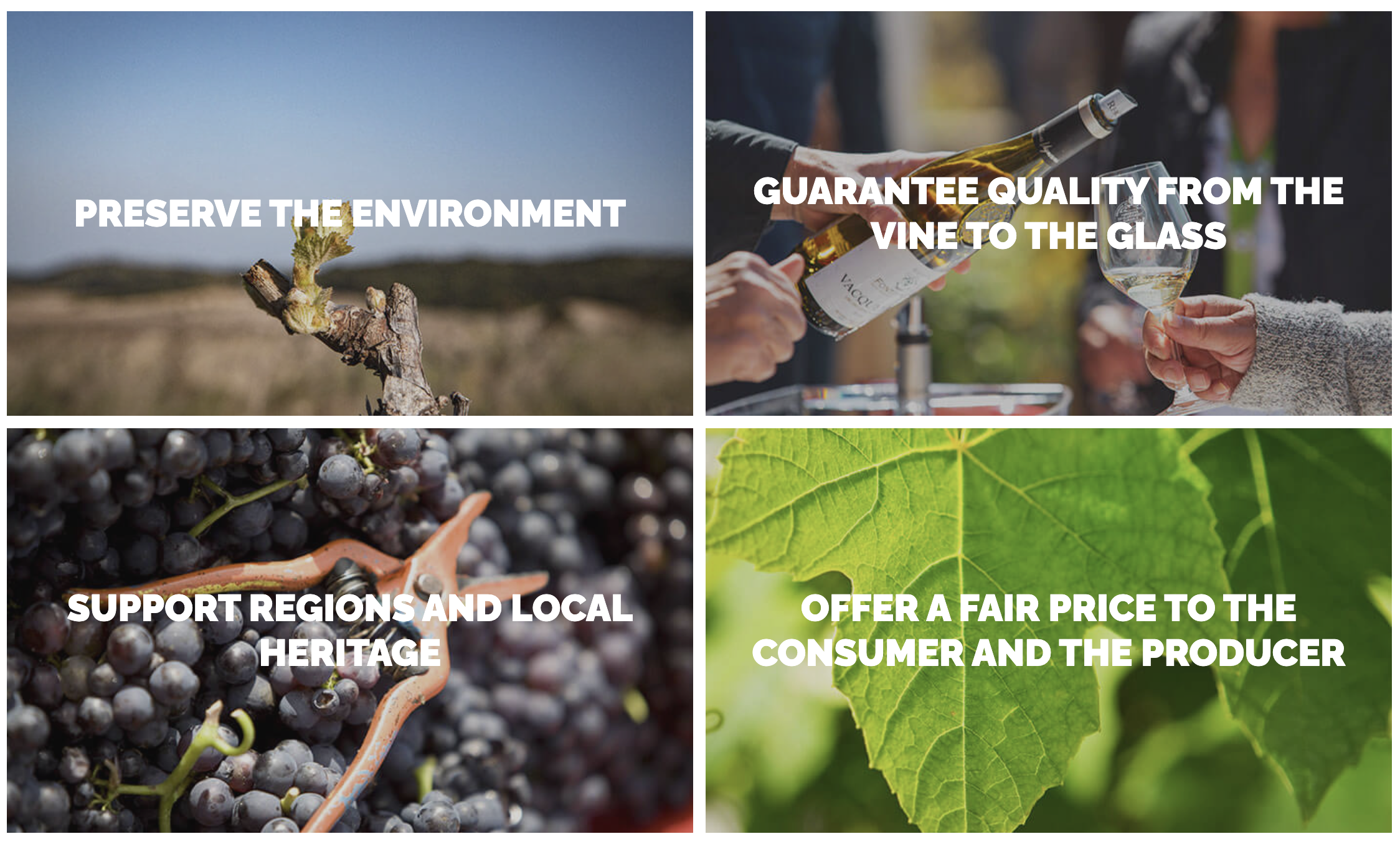wine industry. wine industry. wine industry solutions. wine industry solutions. wine industry. wine industry.
The wine industry is evolving at a very fast pace. The way we consume and enjoy wine will continue to be affected by several factors, climate change being one of the main ones. However, the widespread adoption of new technologies is helping growers and winemakers to fight these challenges, bringing corporate innovation to the table.

Source: https://sustainable-winegrowing.org/
Therefore, how should the global wine industry adjust according to the changing scenario? A series of practical solutions can be implemented to help both vineyards and wineries like:
Winemaking is considered a work of art by the majority of people, but it actually is a highly scientific process. Artificial Intelligence is used to analyse data regarding the quality of the grapes, and other factors that eventually affect the overall taste. Moreover, AI assists winegrowers in making better decisions about their crop and the techniques they adopt to improve the system’s efficiency. This collaboration between artificial and human intelligence perfectly resembles the approach we use at Novable.
Our Novable Agents were able to identify 5 companies that are moving in that direction. Discover how corporate innovation is positively affecting the wine industry by improving the growing process, thanks to the application of advanced technologies.
The Chouette decision support tool has been used by winegrowers in all regions of France since its appearance in 2015. It optimises the decision-making process from pruning to harvesting. Chouette provides precise and quantifiable information from the observation of the vineyards, as well as saving time and increasing profitability. A clear example of putting corporate innovation into practice.
The technology differs from the one used for drones because it is able to capture high-resolution photos (RGB) as close as possible to the vine. It analyses all the shapes, colours, and textures as if it was an artificial eye of the winegrower.
Tule uses cutting-edge artificial intelligence and agronomic knowledge to support irrigation decisions for producers. The sensor is able to detect the Actual evapotranspiration (ETa) of a specific field. The development is based on research conducted by students and professors at the University of California Davis.
Their goal is to support future generations of producers in increasing their output and profits while reducing the environmental impact.
Marama Labs Cloudspec™ technology can simultaneously measure clear and turbid liquids’ absorption, extinction, and scattering spectra. This represents the world’s first UV-Vis spectrophotometer.
The technology allows for analyse, anticipate, and regulate the colour and phenolics of whites, rosés, and reds at every stage of the winemaking process. All of this is thanks to its ground-breaking capacity to measure both clear and hazy samples.
The corporate innovation’s additional value is also represented by the fact that the mechanism allows standard UV cuvettes to be placed inside an integrating sphere, with highly reflecting walls. The sample does not scatter any light outside the integrating cavity, hence it has no impact on the overall transmission.
Naio Technologies developed three different robots favouring farms’ needs. For this article, we are going to focus on the Ted technology, “the first robot dedicated to vineyards, an alternative to the use of herbicides that respects your soils and improves your working conditions”. The benefits of Ted are:
Gofermentor brings advanced technology to winemaking, by introducing cutting-edge technology that offers greater control over fermentation settings. This enables the production of consistently better quality wine. This system eliminates punch down labour and presses the wine out just by clicking one button. Moreover, water usage is significantly reduced (up to 90% on average), since there is no need for washing, steaming, or detergents.
Instead of a traditional “punch down”, Gofermentor performs a “punch-up”. This concept is made possible thanks to the usage of flexible bag technology, which is the driver of excellent colour and taste extraction.
Studies on the effects of climate change on wine quality and grapevine health have all addressed the need of applying corporate innovation to the industry, by testing new tools and mechanisms.
New technologies help companies to innovate in ways that provide a quick return on investment (ROI) without compromising family recipes or traditions. Moreover, the production process is being positively affected as well, by allowing winemakers to experiment leaner, more profitable, and more sustainable activities.
The difficulties that winemakers are facing more and more frequently, such as fires, floods, and pandemic closures, make new technologies’ adoption essential to accelerate the recovery process after each crisis.
What is your opinion on the topic? Let us know what you think on LinkedIn!